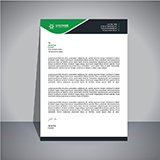
For years, financial professionals have been leveraging social media platforms like Facebook to reach their natural and extended markets. It’s been a lucrative practice for them. Naturally, it was only a matter of time before executives at Facebook took notice.
Starting in January, the Facebook gravy train is coming to an end for small business owners – an event that is going to have an impact on the way financial professionals, including insurance agents and agency owners – do business on social media.
Background
Facebook naturally monitors how users feel about their Facebook experience, and had found that many of their customers were complaining about “overly promotional” content. This included content from pages that users had “liked.” Facebook specifically cited these kinds of posts:
Posts that solely push people to buy a product or install an app.
Posts that push people to enter promotions and sweepstakes with no real context.
Posts that reuse content from advertisements.
“It is unclear if Facebook is penalizing all brand posts or just the posts created to sell something. Helpful and interesting content will likely prevail, regardless of the source. So it’s best to take a ‘wait and see’ approach“ advises Carol Fowler, CEO of KloboMedia, a Chicago-based consulting and marketing firm that specializes in social media strategy. “For all the cries about unfairness, Facebook remains the best social platform to engage with a company’s current and potential audience. It is also an excellent way to drive website traffic, now rivaling Google’s organic search.”
While Facebook is a powerful force for any referral-heavy client services industry like insurance, the new rules are going to have a substantial effect on many small advisors and agencies that rely on social and affinity marketing to spread their message – as many as 80 percent of small businesses, according to a survey by a marketing research firm called Webs.
Webs also found that Facebook – no surprise – is the 800-pound gorilla of the social media world, with 88 percent of social media-aware businesses using Facebook for marketing purposes. LinkedIn, Twitter and Google Plus follow, in that order.
As an option, Facebook will allow users to “promote” their posts, by paying a fee of $5 and up in order to boost the number of user feeds in which their promotional content will appear.
What this means is that Facebook will join most other media platforms as a “pay to play” arena. But that shouldn’t come as much of a surprise to observers. If successful, other social media platforms will no doubt follow suit in tightening up promotional content on their feeds as well.
Best Practices
Agents and agencies can still post – and their posts will still get read! But posts should focus on practical content of genuine interest and value to readers, and not purely promotional in nature. Indeed, judging from the examples Facebook cites as “overly promotional content,” merely introducing a call to action or offering a product could throw the flag and cause Facebook’s algorithms to suppress your posts.
For best results, make sure you target any posts. For example, by going to the top of your Page, clicking “settings, then “post targeting and privacy,” you can add targeting to your post to focus your reach on specific genders, interests, age groups, locations and the like. Which helps you communicate like a rifle, not a grenade.
You can also get a handle on your Facebook metrics by using Page Insights. This analytics feature gives you specific data on total and new “likes,” number of unique viewers, visits, referral pages, and similar or competing pages to watch.
For more best posting practices from the Facebook team, click here.
This article is sponsored by

You can create your agency newsletter by going to InsuranceNewsletters.com, where you will find a number of options including creating an email or print newsletter that can be customized and personalized for your agency.
Looking to start an Agency? Get detailed information by reading our Guide to Starting an Insurance Agency














